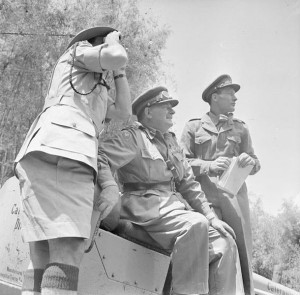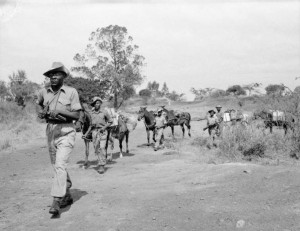Dr Sarah Stockwell, a senior lecturer in Imperial and Commonwealth History at King’s College London, discuss the latest in a series of decolonisation workshops organised by the Institute of Commonwealth Studies.
I am greatly looking forward to the upcoming workshop ‘The hidden history of decolonisation’ at the Institute of Commonwealth Studies (ICWS) on 20 February.
This is the latest in a regular series of ‘decolonisation workshops’ organised by ICWS in conjunction with King’s College London, which are now firmly established as key events for those working in the field, especially for postgraduates and early career researchers. Last semester’s workshop organised with colleagues at the University of Portsmouth on ‘Connected histories of decolonisation’ was an outstanding success. This week’s event promises to be different again – and very important.
We’re going to be discussing what has literally been the ‘hidden’ history of British decolonisation. In 2011 as a result of a successful legal action brought by Mau Mau veterans, former British foreign secretary William Hague finally admitted what had long been suspected but never previously confirmed: that British governments had covertly removed thousands of files from former colonies at independence. Rather than deposit these with other colonial records, these so-called ‘migrated archives’ were secretly stashed at a government repository at Hanslope Park.

Lieutenant General Sir George Erskine, Commander-in-Chief, East Africa (centre), observing operations against the Mau Mau
At a stroke this revelation cast an entirely new light on Britain’s retreat from empire. Not only were all previous accounts of UK policy based on a seriously incomplete archival record, but even more strikingly, on the archival base that British governments chose to release to historians. This was not just a question of government holding back files under the usual mechanisms, but of actively denying their existence. That successive British governments chose to do this speaks volumes about the ways in which they sought to manage not only the decolonisation process but also our historical understanding of it.
What was it about the content of these files that led British public servants in the 1950s and 60s to regard them as so potentially inflammatory that they chose to conceal their existence not just at the time, but for decades after? In May 1961 at the height of Britain’s withdrawal from empire the Colonial Office issued instructions as to which documents should not be left behind. These included those that might embarrass the British or other governments, or members of the police, military forces, public servants or others such as police informers.
Recent books have already cast a spotlight on repression and abuse by British-led forces in Britain’s former colonies. In 2013 the British state was forced to pay nearly £20 million in compensation to over 5,000 Mau Mau veterans who had suffered torture under the British administration during the 1950s war in colonial Kenya. Last year more than 40,000 Kenyans filed a further claim against the British government. How much more have we to learn about this truly disturbing aspect of Britain’s imperial past?
In all an astonishing 19,950 files (record series FCO 141) relating to 41 countries have now been deposited in the UK’s National Archives. At Friday’s workshop we’re going to hear from some of the foremost historians of decolonisation who’ve been exploring them.
The speakers include leading historian Professor David Anderson, an expert witness at the Mau Mau hearings whose efforts were instrumental in securing the release of these records. Other speakers will discuss Malaya and Cyprus. The workshop promises to be a really intriguing, and, quite possibly, troubling, occasion.
Dr Sarah Stockwell teaches imperial history at King’s College London. She has published widely on the history of empire and especially British decolonisation. Her most recent book co-edited with L.J. Butler is The Wind of Change. Harold Macmillan and British Decolonization (Palgrave, 2013). She is currently writing a book to be published by CUP exploring British decolonisation from the perspective of a variety of domestic British institutions.

